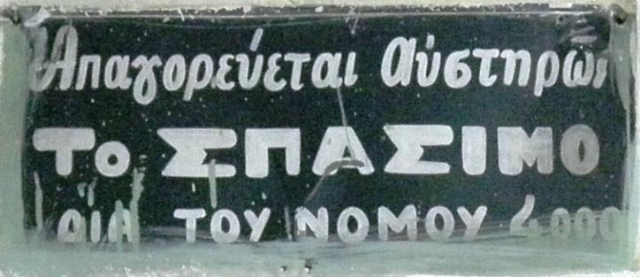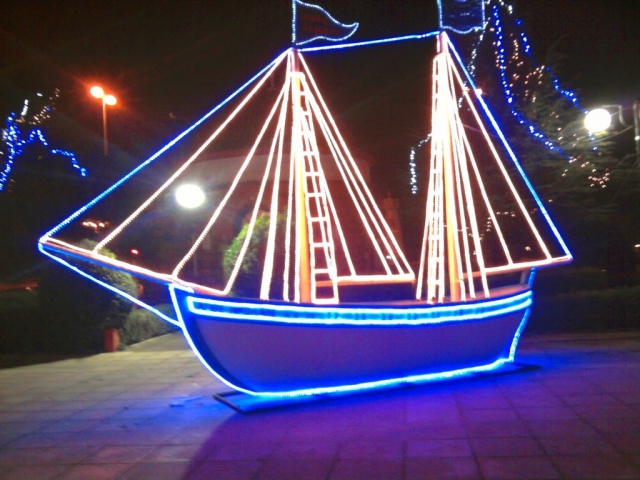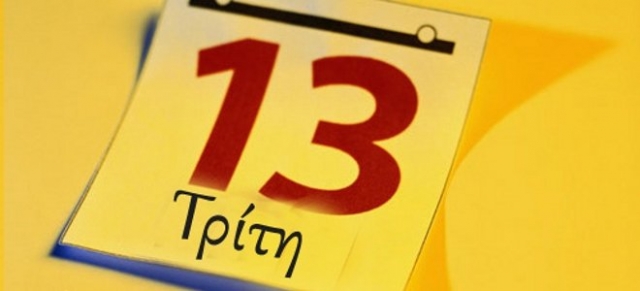Although Greece has recently been associated almost exclusively with financial problems, strikes and riots, it is still a beautiful country with very colourful and vibrant traditions. Tens of millions of foreigners visit the country every year to experience the Greek culture and history, to enjoy the region's natural beauty and to look at the Mediterranean through the eyes of the locals. Everyone who has visited the country at least once, knows the pleasant softness of the summer breeze in seaside taverns. They have seen how the Acropolis, towering high above all daily vanity, decorates Athens and they have had the chance to experience the hospitality and open spirit of the Greeks themselves.
Faithful to their warm blood and Mediterranean character, the Greeks have their own way of taking both the joys and blows of life. For example, we can see them dance when they are sad or break plates and shout loudly when merry. Such behaviour would be interpreted in a completely wrong way by some Western European countries, but in Greece things are done as the Greeks do!
Therefore, we asked our readers what is the strangest Greek tradition they have come across. We listed some of the most intriguing instances, according to our office, making no claims to have covered the whole range of interesting customs that one can encounter in a tour around the country.
"The baby has no name until baptised" ranked first. This tradition puzzled most readers of the  Bulgarian and English versions of our site - 43% and 34%, respectively. A lot of parents call their offspring "the baby" for a long time - even for a year or two - before they start using his or her name. The tradition in Greece requires that children cannot be given a name until they are baptised and accept Christianity. Although secular authorities allow parents who do not want to baptise their children to enter their names in the municipal register and recognise them, this practice is not widespread yet. Greek readers of our website also found this tradition strange, as shown by 30% of voters.
Bulgarian and English versions of our site - 43% and 34%, respectively. A lot of parents call their offspring "the baby" for a long time - even for a year or two - before they start using his or her name. The tradition in Greece requires that children cannot be given a name until they are baptised and accept Christianity. Although secular authorities allow parents who do not want to baptise their children to enter their names in the municipal register and recognise them, this practice is not widespread yet. Greek readers of our website also found this tradition strange, as shown by 30% of voters.

The tradition of breaking plates and throwing flowers, typical of live music pubs, ranked second. One in every three voters of the English and Bulgarian versions of our sites agreed that this is probably the weirdest tradition in Greece. The same opinion is expressed by one in four respondents of the Greek version. Actually, breaking plates was unofficially cancelled in the mid-1990s, but today it can be seen at family parties, roadside restaurants, or large gatherings.
The tradition of breaking plates was adopted in Greece in 1930, as a lighter version of another then-

known tradition - throwing knives at the feet of dancers as a sign of respect and tribute to the courage of the dancing. As we can guess, such parties did not lack serious injuries. This made the government put a ban on throwing knives at people's feet, and this tradition was replaced by throwing plates. Thus, when someone danced or sang, breaking a plate at their feet became an expression of deep and genuine admiration. The same sense is born by the custom of throwing flowers in a tavern, but it is significantly safer than throwing knives and plates.
The third most bizarre tradition in the Mediterranean country, according to Bulgarian readers of our site,

is decorating boats instead of trees for Christmas, as 10% of voters considered this tradition to be the most curious. Some 7% of our English version readers share the same opinion. The ship is a symbol of prosperity and well-being according to the traditions of the islands and the country's coastal regions. It was considered a major source of funds and livelihood. Decorated boats at Christmas and New Year's Eve embodied the hopes and wishes of the families of sailors for good health, success, good catches and successful trade. Although today one can see a beautifully decorated classic Christmas tree in the centre of Athens, in Piraeus, however, you will find a festive boat, decorated with lights and garlands.
The fall of Constantinople in the spring of 1453 has remained a grim event in Greek history. After the

Byzantine Empire lost its capital city of Constantinople, in Greece, Tuesday, the 13th is considered a fatal day, instead of Friday, the 13th. The Greeks never managed to regain the historic city and although its name is now Istanbul, it is still called by its Byzantine name - Constantinople (Κωνσταντινούπολη) in Greece. The date when the Ottomans took possession of the city, was the 13th, but the day was Tuesday. After this event, it was considered a day of adversity and disappointments. In western Europe, Friday the 13th is associated with the slaughter of the Templars in the 12th century and has been therefore considered an unlucky day from then on. The Greek analogue of Friday the 13th is Tuesday the 13th - 9% of our Bulgarian readers, 7% of the English-speaking ones and 12% of our Greek readers found strange the tradition of considering this day inauspicious.
Another characteristic feature of Greece is its music and the traditions associated with it. The legendary melody written by Mikis Theodorakis for the film version of Zorba the Greek has become emblematic of Greek music. It starts heavily and slowly. It moves on carefully as if on tiptoe. Then, slowly and